As our sleek high-speed train passed the edge of Lac du Bourget, I watched the blazing sun set behind the peaks of the Chaîne de l'Épine range. Taking the train may be better for the planet than flying, but it also offers better views.
I was on the first service of the Eurostar snow train, which took me from London St Pancras to Bourg St Maurice, the gateway to a cluster of France's largest and most famous ski resorts - including Val d'Isère, Tignes, La Rosière, La Plagne and Les Bogen.
In recent years, this route has been teetering on the brink of extinction. It has been over 160 years since Thomas Cook organized the original snow train to the Alps. Early 21 st century, more than 30,000 British skiers traveled to the Alps every winter on the direct Eurostar service.
But the rise of low-cost airlines undermined demand and when the pandemic hit, Eurostar canceled the route in July 2020 to focus on their 'core destinations'.
A petition and lobbying by French and British activists led to a new service, organized by tour operator Travelski, but when it became known last summer that this too would not take place, enthusiasts of sustainable ski holidays despaired.
It turned out that Eurostar had waited until the merger with the Belgian railway company Thalys was completed. Shortly afterwards, the new Eurostar Snow Train was announced, albeit with one major difference: instead of traveling directly from London to the Alps, passengers would be transported via Lille and transfer to one of the newly purchased Thalys trains.
The story continues
Although capacity is limited to just eight weeks, the new service has proven popular between mid-December and early February. Eurostar reported that more than half of the available tickets were sold within the first week of sales.
Tour operators such as Inghams Ski and Travelski are also offering holidays that include the service in lieu of flights, and Inghams confirmed last week that their train packages were already 84 percent sold.
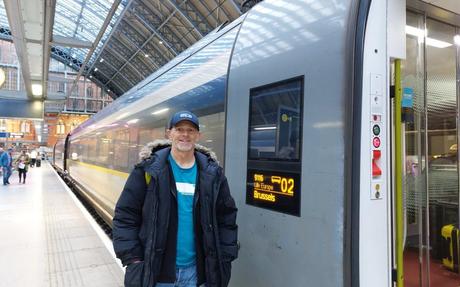
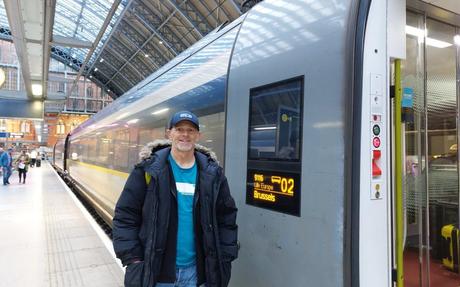
With more than 4,000 travelers set to use the service this winter, I wanted to know if this new low-carbon option for skiers could live up to the hype.
As someone who has traveled to the Alps by train since the hedonistic disco coach days of the 1980s, when you had to take the train to Dover, take the ferry to Calais and then board the night train, sleeping in Spartan couchettes, I was excited to find out.
Despite warnings that up to 35,000 passengers a day were expected to depart London St Pancras over the Christmas period, I was relieved to sail through security and customs checks in just 15 minutes.
The first surprise was that although many keen skiers bundled their skis and ski boot bags onto the train, it was only a regular service between London and Lille, supplemented by couples and families mainly heading to shop at Lille's Christmas markets.
Encouragingly, there was plenty of room for everyone, despite the oversized luggage. Eurostar had reserved rows of seats specifically for ski storage, leaving plenty of room in the aisles.
After crossing the Medway and then diving under the Channel, our quick arrival in Lille quite surprised me. At just one hour and 20 minutes, Lille is almost an hour faster than the Eurostar to Paris, and panic ensued as skiers clumsily rushed to unload their suitcases before the train continued to Brussels.
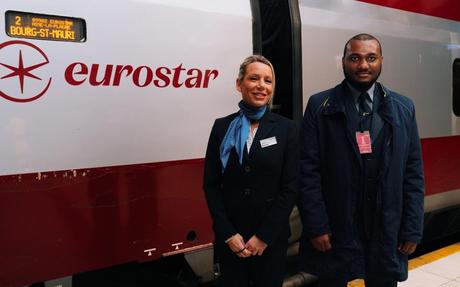
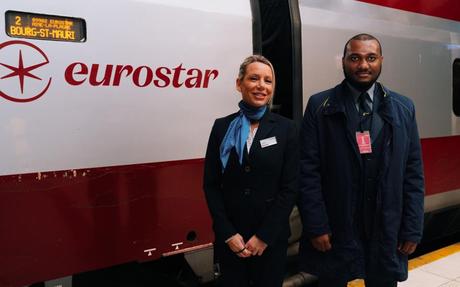
Changing trains in Lille was as easy as promised by Eurostar. The onward train to the Alps departed from the opposite platform, with plenty of time to store luggage luggage for Moûtiers and Bourg St Maurice respectively, and to visit the patisserie in the station hall for a first continental croissant.
The most significant change from the previous Travelski service is the lifting of their puritanical alcohol ban. As we made our way towards the Alps, the pop of champagne corks echoed past our carriage as skiers celebrated our progress towards the snow.
This does not mean that the new service was free from teething problems. Clearly no one from Eurostar has read it Asterix in Great Britain - in which the fierce British stop fighting the Romans every day at 4pm so they can get a cup of hot water - while the train runs out of tea bags within an hour.
Despite the insult to British tea-drinking habits, fellow passengers I spoke to were positive about the new service. Clare Crosby and her family had set off from Newick in East Sussex, choosing the train because 'it's faster than driving, even though it's more expensive.'
Charlotte Roberts was cradling her six-month-old son Joshua as she told me her decision to travel by train was because "the whole journey is so much easier than flying when you have a baby."
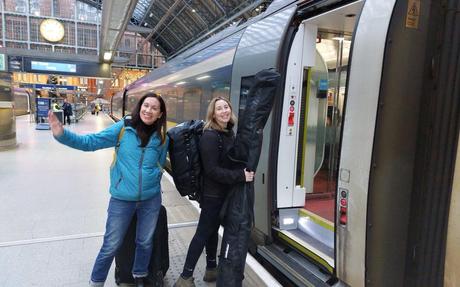
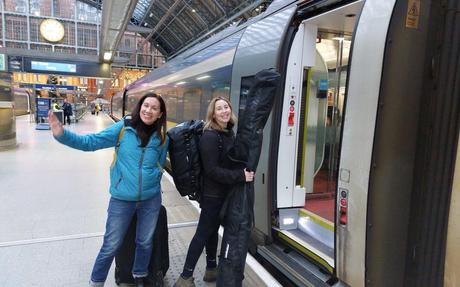
Other passengers were more motivated by the environmental benefits. Chemmy Alcott from BBC Ski Sunday enthused: "It's just like any normal travel day, but without the guilt and with a lot more excitement."
Has the future of sustainable travel been saved? Only if enough people use the service, says Alcott: "If we can get bums on seats and show that it is popular, then hopefully they will run more trains. That's what we really need."
Essentials
The Eurostar snow train departs from London St Pancras via Lille every Saturday morning at 9:01 AM until February 4, 2024, stopping at Chambéry, Albertville, Moûtiers (5:30 PM), Aime-la-Plagne (6:00 PM) and Bourg -Saint-Maurice (18:20). The return is the following Sunday during the day.
Train-only tickets were available from £99 each way, but there is limited availability left for this winter. The cheapest return currently available now costs £365, departing on January 20.
Packages are available from Inghams, with a seven-night stay at Arc 1950, self-catering, including train travel and transfers, from £1,109 pp, on a four-sharing basis, departing on February 3, 2024.
